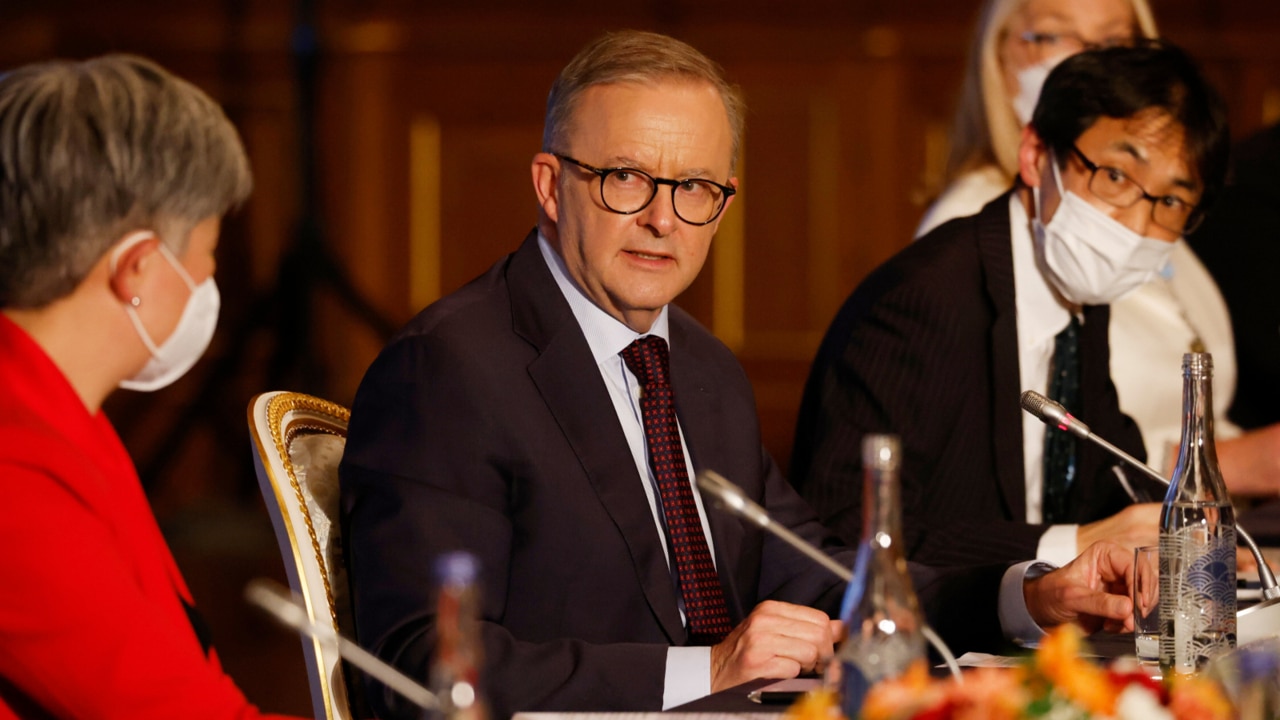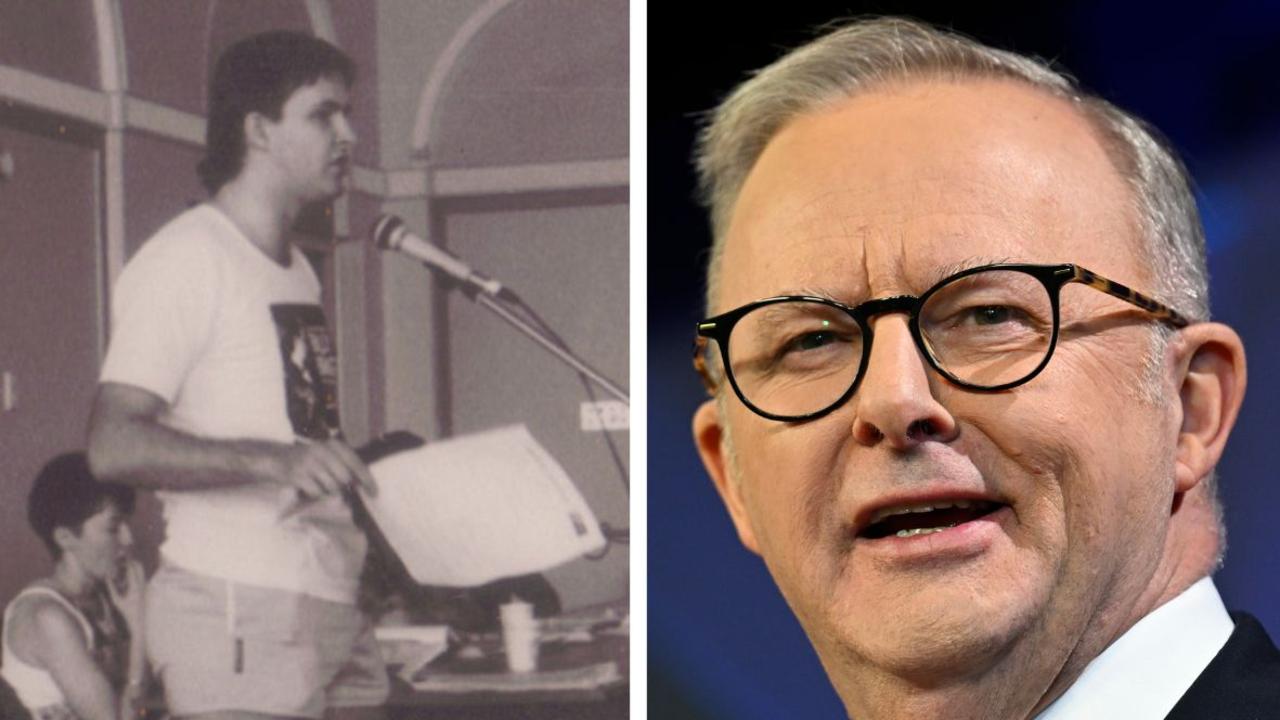Chinese media blasts ‘ignorant’ Anthony Albanese, claims Australian PM is being ‘misled by NATO’
Chinese media has taken aim at Anthony Albanese, claiming Australian PM is being “misled by NATO” and that hopes for bettering relations were “diminishing by the day”.

China has lashed Anthony Albanese in a pointed column, declaring the new Australian Prime Minister was “ignorant”, “ill-informed” and being misled by NATO on geopolitical matters.
In an opinion piece published this week, Beijing-backed publication China Daily said hopes for a reset in relations between Australia and China were “diminishing by the day”.
The publication claimed Mr Albanese had drawn parallels between the Ukraine war and China’s interest in the Pacific, particularly Taiwan, prompting swift backlash from the Communist Party.
In a recent interview with the Australian Financial Review, the Labor leader condemned “attempts to impose change by force on a sovereign country meet resistance”, claiming Russia had become a “global pariah” for its renewed attempt to expand its borders and influence.
“It is hard to believe that the new Australian leader can be so ill-informed as to not know China’s stance on the Ukraine crisis, which it has clarified on multiple occasions, or that he can be so ignorant as not to understand the status of Taiwan,” the China Daily column read.
“The take-away from his words then is that while he might talk of wanting to improve his country’s relations with China, he is either going to have to make dedicated efforts to better understand the issues that have led to bilateral ties deteriorating precipitously or be more diplomatically astute.”
The state-backed media outlet claims Beijing “has displayed goodwill in the hope that Canberra will be willing to work with it to improve bilateral ties” following the recent Federal election.
“But so far, Canberra has not reciprocated with a message expressing its willingness to resolve its differences with China and put bilateral ties back onto the right track,” the column continued.
The Communist Party also took aim at Australia’s opposition to China’s recent attempt at securing a security deal with the Solomon Islands, a pact that would reportedly allow military operations on Australia’s doorstep.


“From deliberately playing up and smearing China‘s normal security cooperation with the Solomon Islands to eagerly jumping on the US bandwagon drumming up support for its containment policy against China, the current Australian government has displayed no signs of changing the course set by its predecessor,” the China Daily wrote.
NATO on Wednesday, for the first time in its guiding blueprint, said China’s power challenges the alliance and Beijing’s closer ties to Moscow went against Western interests.
“The People’s Republic of China’s (PRC) stated ambitions and coercive policies challenge our interests, security and values,” NATO’s strategic concept published at a summit in Madrid said.
“It strives to subvert the rules-based international order, including in the space, cyber and maritime domains.”
NATO accused China of targeting NATO members with its “malicious hybrid and cyber operations and its confrontational rhetoric”.
Leading NATO power the United States has pushed for the alliance to pay greater attention to China, despite reluctance from some allies to switch attention away from its focus on Europe.
NATO’s guiding document -- updated for the first time since 2010 -- said Russia was the “most significant and direct threat to allies’ security” after its invasion of Ukraine.
And it said that increasingly close ties between Moscow and Beijing “run counter to our values and interests”.

In a sign of the increasing concerns about China, the leaders from regional partners Japan, South Korea, Australia and New Zealand were attending a NATO summit for the first time.
“China is substantially building up its military forces, including nuclear weapons, bullying its neighbours and threatening Taiwan,” NATO chief Jens Stoltenberg said.
“China is not our adversary. But we must be clear eyed about the serious challenges it represents.” Stoltenberg said “NATO will step up cooperation with our Indo-Pacific partners, including on cyber defence, new technologies, maritime security, climate change and countering disinformation”.
“These global challenges demand global solutions,” he said, adding: “We will also do more with our partners.” Ahead of the unveiling of NATO’s new strategy, Beijing already pushed back against the alliance for increasing its attention on Asia.
“In recent years, NATO has been pushing for expanding its area and field, advocating group confrontation,” said Chinese foreign ministry spokesman Zhao Lijian.

It came as the United States vowed to reinforce Europe’s defences in the wake of Russia’s invasion of Ukraine, as NATO declared Moscow the West’s greatest threat -- prompting Vladimir Putin to lash out at the alliance’s “imperial ambitions”.
NATO leaders said Russia “is the most significant and direct threat to allies’ security and to peace and stability in the Euro-Atlantic area”.
This came as NATO welcomed Sweden and Finland as invitees to join the alliance, and US President Joe Biden announced new deployments of US troops, ships and planes.
Biden boasted that the US move was exactly what Putin “didn’t want” -- and Moscow, facing fierce resistance from Ukrainian forces equipped with Western arms, reacted with predictable fury.
Putin accused the alliance of seeking to assert its “supremacy”, telling journalists in the Turkmenistan capital of Ashgabat that Ukraine and its people are “a means” for NATO to “defend their own interests.”
NATO leaders have funnelled billions of dollars of arms to Ukraine and faced a renewed appeal from President Volodymyr Zelensky for more long-range artillery.
“Ukraine can count on us for as long as it takes,” NATO chief Jens Stoltenberg said, announcing a new NATO strategic overview that focuses on the Moscow threat.
The document, updated for the first time since 2010, warned that the alliance “cannot discount the possibility” of an attack on its members.
- with AFP




